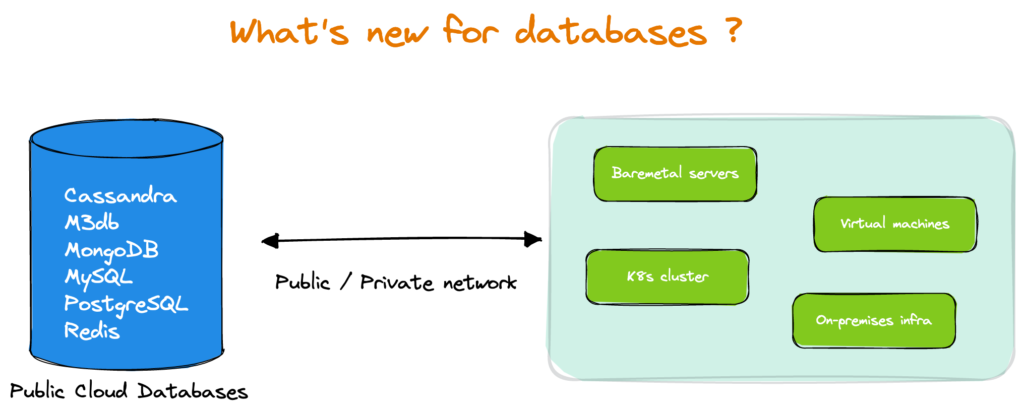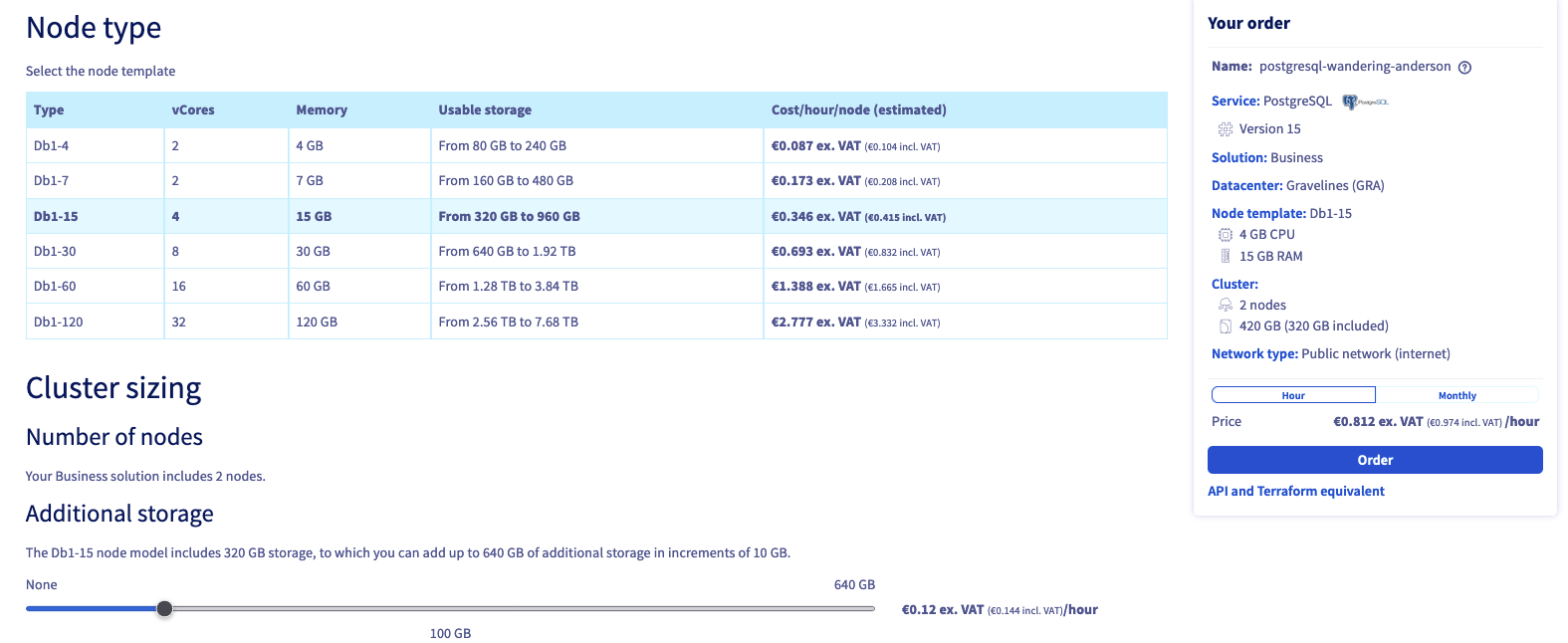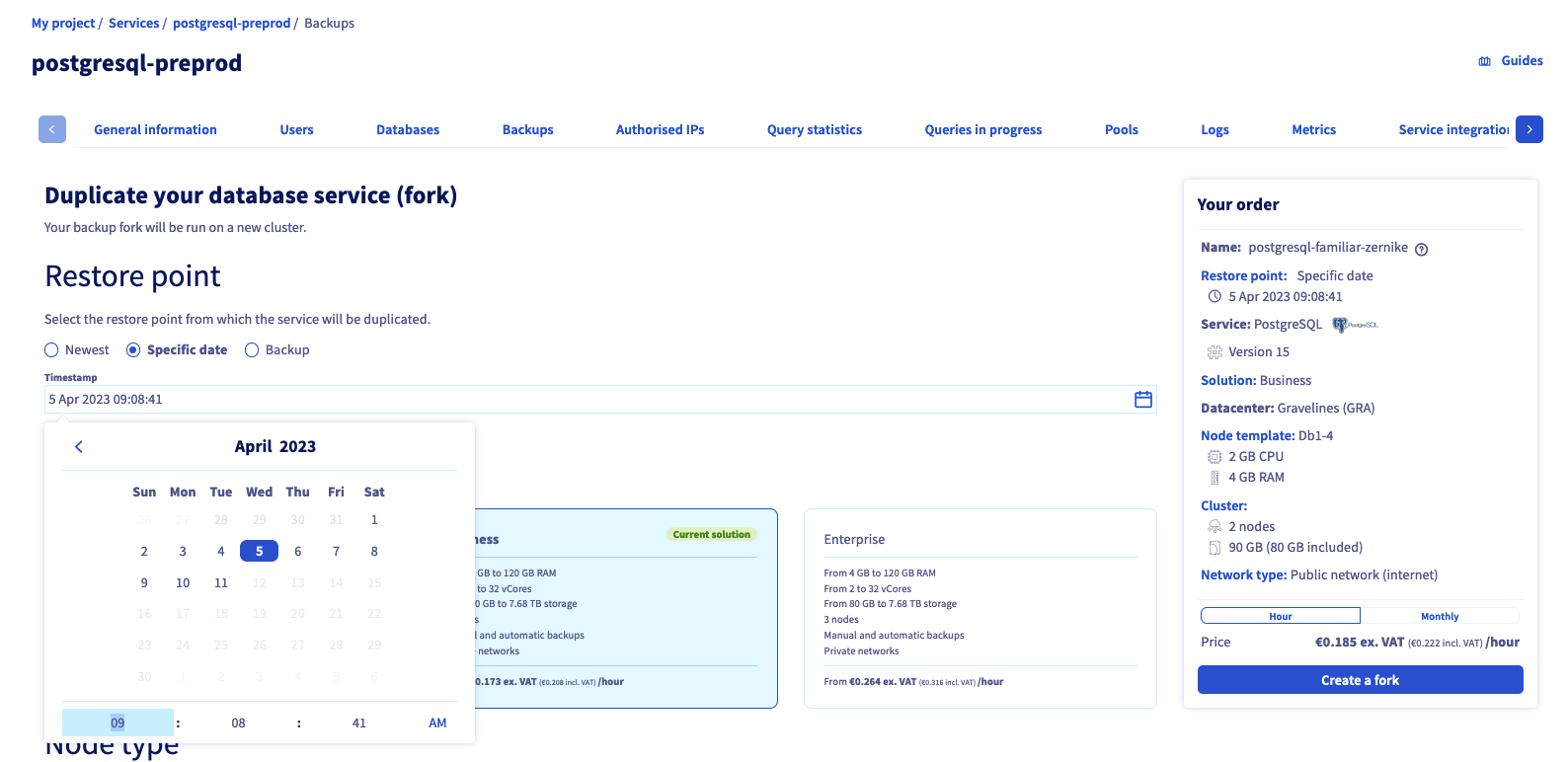Did you know that our managed databases offers are more flexible and resilient than ever ? Let’s discover together what we released recently !
What’s new?
Over the past months, we continued to gather feedback from our customers and improve our offers. Now powering thousands of databases clusters, we focused on the major requests discussed directly with our customers, or from official Github roadmap and Discord community. From better flexibility to higher resiliency, let’s have a look about new features.

Additional storage space for flexibility
The first major improvement is about storage and flexibility. Before, each databases service was launched with a fixed amount of storage, depending of the nodes sizing. As a example, nodes with 16GB of RAM came with 400GB of storage. A recurring request of more flexibility, at creation but also once it’s running is now live with additional storage option.
During cluster creation, you can now opt for more usable storage space for your service. And once your cluster is up and running, you are free to increase this value without any downtime. So far you cannot decrease the storage space, but it’s prioritized for the incoming months.
You can directly verify minimum and maximum storage space from our website or control panel.

Secondary backup for the same price
We now provide a secondary backup location per service for the same price, for all Databases services except MongoDB (only one remote backup for now). One in the same physical location, and another one in a remote location (offsite backup).

Another recurring request is to provide a better fault-tolerance, for any situation, such as a rack failure, a datacenter failure or anything else. Since the beginning, we provide daily backups in the same geographical location. Being in the same location is very useful in case of localized issues. You avoid network latency, and improve restoration time. But remote backups were awaited. it’s now provided for free for any cluster, running or soon-to-be created. You can find your backup location directly in our API, and soon via OVHcloud Control Panel. More information in our official documentation!
Exact time machine with PITR
Point-in-time-recovery (PITR) is now available for all MySQL, PostgreSQL and MongoDB Enterprise services, directly via OVHcloud Control Panel or API. What does is bring?
One of the nicest feature from MySQL, PostgreSQL and MongoDB is Point-in-time-recovery, known as PITR. Imagine being able to travel back in your database operations, and restore your data at a really specific timestamp, such as “two days ago, 15h02 and 24 seconds” ?
PITR proved its efficiency over the years and saved the life of many databases admins. Imagine yourself deleting the wrong table at 15h02, and being able to restore the minute before instead of the backup from last day? This is not black magic, but only a combination of daily backups and logs files (such as WAL logs for PostgreSQL).

… And much more !
In case you missed it, we also released tons of improvements in the last six months, here we go !
- Latest DBMS version with PostgreSQL 15 and MongoDB 6.
- Automatic email alerts when your cluster is reaching storage limits (also, you can retrieve the disk usage with our API)
- Ability to terminate PostgreSQL/MySQL queries directly from control panel or API. Quite useful when a specific query is impacting your cluster.
- Much more control over MongoDB roles from control panel and API. More information.
- More storage by default for MongoDB offers. Don’t hesitate to check our website!
What’s next?
Our roadmap for the next months is public, and still connected to customer requests.
The first item is about storage performance. While our clusters fit globally our customer workloads, advanced ones can feel performance limitation on the storage part. We are currently implementing better storage, reaching 20’000 IOPS instead of 3’000. It’s already implemented for the same price in MongoDB cluster, and soon for everything else (roadmap card).
Second major item will be a better integration with Kubernetes clusters, located in OVHcloud or any other provider. Today, you can link them together, but it will be improved with a Kubernetes operator (roadmap card), simplifying the authentication between them.
That’s all for today ! If you have specific needs of just want to give it a try, don’t forget that all the services are billed per hourly, meaning that you can test your use case for a couple of euros. and please join our Discord community to share your feedback after !
Product Manager for databases / big data / AI

